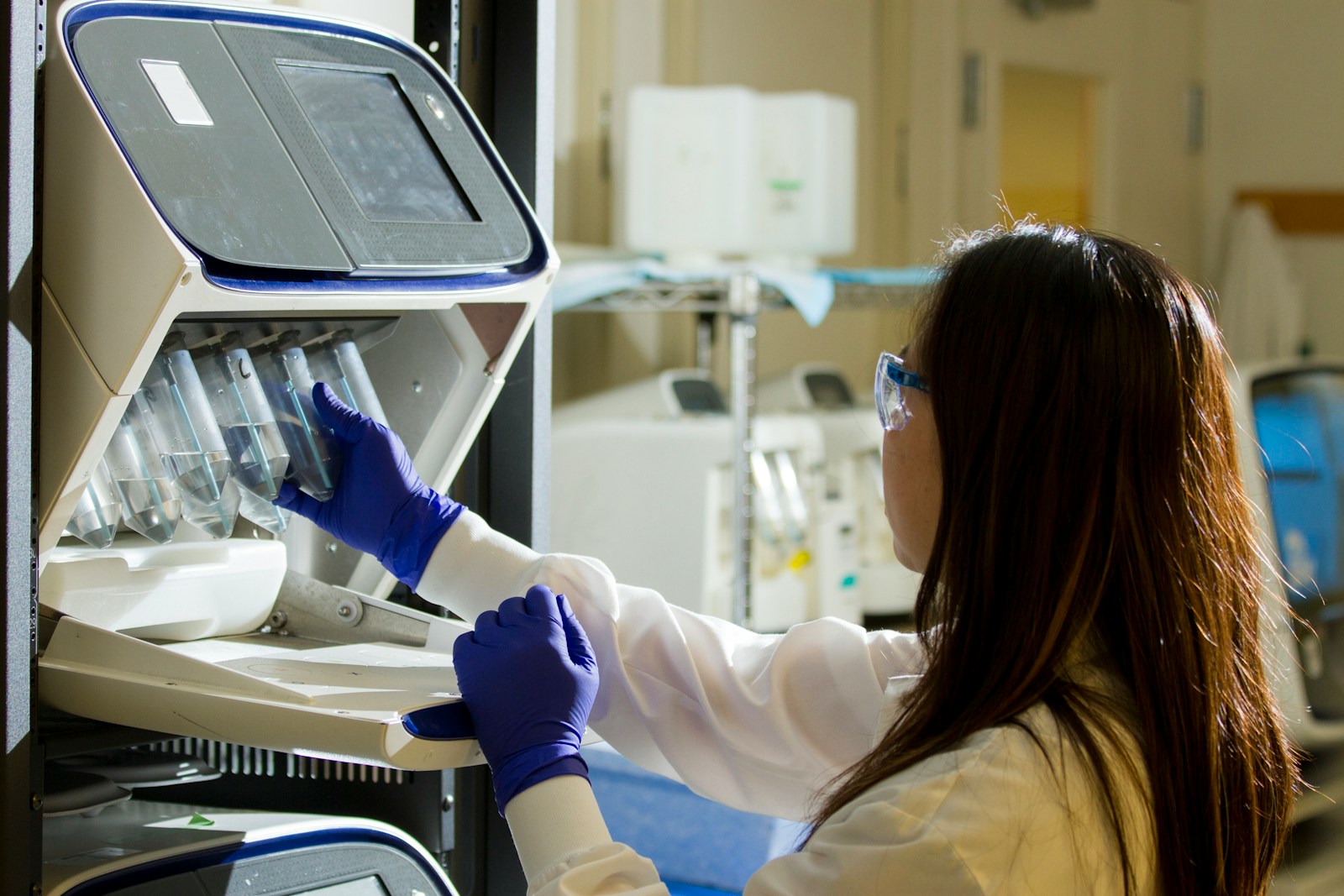Understanding the differences between biotechnology and biopharmaceuticals is crucial in grasping the scope and impact of modern medicine. Biotechnology involves the use of living organisms or their components such as cells and enzymes. It is used to develop products and technologies that enhance health, agriculture, and the environment. Biotechnology is an umbrella term that includes a diverse range of applications, from genetic engineering to the production of biofuels. On the other hand, biopharmaceuticals, also known as biopharma, deals with the development of pharmaceutical products that are produced through biotechnology.
Difference Between Biopharma and Biotech
| Feature | Biopharma | Biotech |
|---|---|---|
| Focus | Specifically the development of therapeutic drugs and treatments derived from living organisms. | Broader applications. Incorporates biopharma but also extends to areas like agriculture, food science, industrial processes, and environmental solutions. |
| Types of Products | * Vaccines * Monoclonal antibodies * Gene therapies * Cell therapies * Therapeutic proteins | * Genetically modified crops * Industrial enzymes * Biofuels * Bioremediation solutions * Diagnostics |
| Scope | A subset within the larger biotechnology field. | The overarching field encompassing various applications of biological systems and living organisms. |
| Business Model | Primarily focused on research and development (R&D) of new therapies, often partnering with larger pharmaceutical companies for commercialization. | More diverse business models, including product development, manufacturing, and service provision across various sectors. |
Key Points
- All biopharma is biotech, but not all biotech is biopharma.
- The lines are increasingly blurred as traditional pharmaceutical companies invest heavily in biotechnology-derived medicines.
- The term “biopharmaceutical company” is sometimes used to describe a company that develops both traditional and biotechnology-derived drugs.
In contrast, biopharma is a subset of biotech that focuses exclusively on medical drugs and treatments. This sector uses biotechnology methods to develop complex medications derived from living organisms, such as proteins, antibodies, and nucleic acids. These medications are used to treat and prevent a myriad of diseases and medical conditions. While biotech has broader research goals that can include solving environmental issues, biopharma is driven by the aim of advancing healthcare and improving patient outcomes.
Key Takeaways
- Biotech applies living organisms to develop various technologies, impacting health, agriculture, and environmental sectors.
- Biopharma specifically targets the creation of medical drugs using biotech methods to improve patient treatments.
- Both biotech and biopharma are integral to the advancement of the pharmaceutical industry, yet they have distinct roles and applications.
Defining Biotech and Biopharma
This section provides crucial definitions for understanding the two closely related but distinct fields of biotechnology and biopharmaceuticals. It will also explore their historical development, the key processes and technologies they employ, and the regulatory frameworks that govern them.
Core Definitions
Biotech refers to the use of living systems and organisms to develop or make products. It encompasses a variety of techniques for modifying living organisms according to human purposes, going back to the domestication of animals, cultivation of plants, and improvements to these through breeding programs that employ artificial selection and hybridization. On the other hand, Biopharma, or biopharmaceuticals, includes all the drugs and therapies developed using biotechnology. It specifically focuses on medical drugs produced using biological sources.
History and Evolution
Biotechnology has a long history, beginning with the earliest forms of fermentation and crop domestication. Over thousands of years, it has evolved dramatically, especially with the advent of molecular biology in the 20th century. The discovery of DNA and advances in cellular biology have revolutionized the field, paving the way for modern biotech applications like gene therapy and recombinant proteins. Biopharmaceuticals are a more recent development, coinciding with the ability to use biotech processes for drug development, leading to targeted treatments and personalized medicine.
Key Processes and Technologies
A core process in biotechnology involves genetic engineering, where scientists alter the genetic makeup of cells to produce desired traits or substances. Techniques such as CRISPR and recombinant DNA technology are fundamental to these advancements. In biopharma, the emphasis is on developing biologics, which are drugs derived from living cells, using processes like gene therapy and monoclonal antibodies for medicine to treat diseases.
Regulatory Environment
The regulatory environment for both biotech and biopharma is rigorous, with agencies like the FDA playing a key role in approval and oversight. They ensure the safety and efficacy of new drugs and therapies reaching the market. The FDA requires detailed testing and clinical trials for biopharmaceutical products to protect public health while also supporting innovation in biotech and biopharma drug development.
Industry Applications and Impacts
The biotech and biopharmaceutical industries play crucial roles in developing new treatments that impact patient care and the environment. Both industries employ the use of living organisms in their research but have distinct applications and effects on society.
Biotech Industry Scope
Biotechnology harnesses cellular and biomolecular processes to develop technologies and products that help improve our lives and the health of our planet. The scope of the biotech industry includes not only healthcare but also agriculture, food production, and waste management. In healthcare, biotech companies focus on creating vaccines, antibodies, and new drugs to combat diseases and conditions. These products undergo rigorous testing to ensure they are safe and effective.
- Applications: Vaccines, Genetic Testing
- Focus Areas: Agriculture, Waste Management
Pharmaceutical Industry Focus
The pharmaceutical industry concentrates on developing and producing medicines, primarily through chemical synthesis and other non-biological processes. Biopharmaceuticals are a subset of this industry, focusing on drugs derived from living organisms, such as proteins used to treat various diseases, including COVID-19. These companies are dedicated to sustaining a pipeline of new drugs to address unmet medical needs.
- Main Products: Prescription Medicines, Over-the-Counter Drugs
- Key Efforts: Drug Development, Disease Treatment
Healthcare and Patient Impact
Both industries significantly impact patient outcomes by providing new therapies for a variety of diseases. Biotech’s innovative approach to medicines, such as those developed to tackle the COVID-19 virus, has led to advanced treatment options for patients. Meanwhile, biopharmaceuticals offer highly specialized treatments that can significantly change the lives of those with chronic or life-threatening conditions.
- Contributions: Improved Treatments, Advanced Therapies
- Goals: Enhancing Patient Care, Quality of Life
Environmental Consciousness
The biotech industry also advances environmental consciousness by developing sustainable products and processes that reduce waste and pollution. For instance, biotech research into biofuels aims to provide cleaner energy alternatives. Similarly, biopharmaceuticals are often developed with an emphasis on reducing environmental impact through eco-friendlier production methods.
- Priorities: Sustainability, Eco-friendly Products
- Strategies: Waste Reduction, Green Technologies
Frequently Asked Questions
This section addresses some of the most common inquiries concerning the nuances that make biopharma and biotech distinct from one another. Each question targets specific aspects of the two industries including company purposes, career paths, investment potential, and the nature of their products.
How do biopharma companies differ from traditional pharmaceutical companies?
Biopharma companies specialize in producing drugs that are based on biological molecules, like proteins or DNA, while traditional pharmaceutical companies may also develop medications derived from chemical compounds.
What are the distinctions in salary between careers in biopharma and biotech?
Salaries in biopharma and biotech vary largely based on role and experience. Typically, biopharma might offer higher salaries due to the higher costs associated with developing and producing biological products.
What sets biotech firms apart in their approach compared to biopharma?
Biotech firms are characterized by their work across various industries, using biological systems for a range of applications beyond healthcare, which may include agriculture, biofuels, and environmental science.
Can you explain the differences in stock investment opportunities between biopharma and biotech industries?
Investment in biopharma offers opportunities centered on the healthcare sector with emphasis on drug development pipelines, while biotech investments can be more diverse, spanning multiple sectors where biological science is applied.
What categorizes a company as biotechnology versus biopharmaceutical?
A biotechnology company is defined by its use of living systems and organisms to create products that can span various sectors, whereas a biopharmaceutical company specifically focuses on developing drugs for medical use through biotechnology.
In what ways do the products of biotech pharma differ from those of conventional pharma?
Biotech pharma products are mainly biologics, involving complex biological compounds often made in living cells, which can be contrasted with traditional pharma products that are generally small-molecule drugs synthesized chemically.







